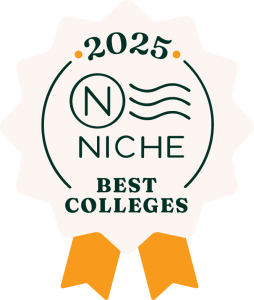
BS in Psychology – Industrial Organizational Psychology
Improve the Workplace with a Bachelor’s Degree in Industrial Organizational Psychology
Have you always wanted to improve the lives of others? An exciting degree option for you may be our Bachelor of Science (BS) in Psychology – Industrial Organizational Psychology. A program like this can help you to work with companies to improve the workplace and employee satisfaction. The field of industrial organizational psychology is a unique and exciting way to make a difference in the lives of others. You could go on to a career in human resources, or you could work as a consultant to companies.
You will explore how to understand the psychological undercurrents that are impacting morale, employee satisfaction and productivity, and management. Why wait any longer? This industry needs people like you who are passionate about making a positive impact on the lives of others. Our goal is to help you get there with our industrial organizational psychology degree.
Credit Hours
View CoursesNext start date: Aug 18, 2025

Liberty University is accredited by SACSCOC
Highlights
Highlights of Our Psychology – Industrial Organizational Psychology Bachelor’s Degree
Hands-On Research
Engage in faculty-guided research projects with opportunities for presentation and potential publication as an undergraduate student.
Practical Training Opportunities
Multiple psychology events and internship opportunities are available to give you real work and training experience.
Experience Education Abroad
Take advantage of academic travel opportunities to destinations in Ecuador, New York, and Poland.
Join Club Psych
Club Psych, our psychology club, offers a chance to connect with professors and peers while exploring topics in the field.
Career Potential
What Can You Do with a BS in Psychology – Industrial Organizational Psychology?
Liberty University’s Bachelor of Science (BS) in Psychology with a specialization in Industrial Organizational Psychology can help prepare you to pursue the following occupations:
- Counselor/psychologist with a private practice
- Human resources counselor
- Occupational psychologist
- Residential treatment counselor/psychologist
- Substance abuse counselor
- Treatment center counselor/psychologist
- Workplace improvement consultant


#4 Best College Campus in America
At Liberty, you’ll find an affordable, high-quality education designed to help equip students like you for the real world. Our commitment to excellence has earned us recognition as the #4 Best College Campus in America by Niche.com.
Earning your degree from a nonprofit university with state-of-the-art resources like ours can help set you apart from your peers.
Courses
What Will You Study in Our BS in Psychology – Industrial Organizational Psychology Degree?
We want you to be well-prepared for the career or graduate school you choose after completing your degree with us. That’s why we’ve curated a curriculum that can help provide the foundational and specialized knowledge to start your journey. Some of the courses you’ll take include topics like personality, research, behavioral modification, multicultural counseling, statistics, and psychological foundations of learning. Additionally, your industrial-organizational courses can help prepare you for this special field as well.
Featured Industrial Organizational Psychology Courses
PSYC 312 – Social Psychology
PSYC 341 – Psychology of Personality
PSYC 365 – Psychological Foundations of Learning
PSYC 420 – Psychology and Christianity
Degree Information
- This program falls under the School of Behavioral Sciences
- View the Degree Completion Plan
- Check out our course catalog
- Transfer in up to 75% of the degree total
BENEFITS
Why Choose Liberty’s BS in Psychology – Industrial Organizational Psychology Degree?
Commitment to Excellence
At Liberty, we care about offering you the best – from your first class to your final project. That’s why we’ve ensured that your professors are experienced professionals, your curriculum is both challenging and enriching, and your education includes practical real-world experience.
Professors Who Invest in You
As a teaching university, Liberty prioritizes direct interaction between students and faculty. The professors in your classroom each week aren’t just experts – they’re mentors who will guide and support you throughout your academic journey.
Expertise You Can Trust
Our professors hold advanced degrees and bring real-life experience from the field of industrial organizational psychology. You’ll be hearing from professionals who understand the theory and the practice – giving you insight that goes beyond textbooks.
Real-World Experience
One of the most exciting parts of this degree is the internship you will complete. Whether you’re placed with a school, church, company, or even in Washington D.C., you’ll graduate with the kind of hands-on experience that sets you apart – whether you’re entering the workforce or continuing on to graduate school.
Admissions
How do You Become a Bachelor’s Industrial Organizational Psychology Student?
Every application is reviewed by the admission committee on a case-by-case basis, meaning there are no set minimums for acceptance. However, all applicants must submit the following documents* for admission:
- Admission application
- Official high school transcripts
- Official college transcripts (if applicable)
- Admission essay
Results from the CLT, SAT, or ACT are not required for admission, but may be used in consideration for merit-based aid.
*Note that additional documentation may be requested by the admission committee after your application has been received.

Have Questions?
We’ll make sure you have the information you need to take your next step.